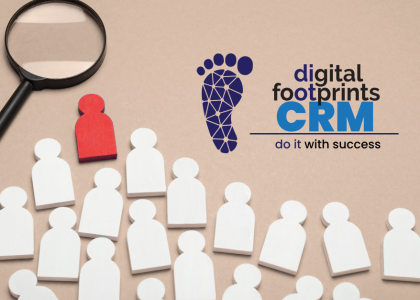In the rapidly evolving landscape of artificial intelligence, two names consistently dominate the conversation: Google’s Gemini and OpenAI’s ChatGPT. Both are powerful large language models (LLMs) capable of an impressive array of tasks, from answering complex questions to generating creative content. But how do they stack up against each other, and which one truly excels? As someone who uses these tools daily, I’ve developed a clear preference, and I’m here to share my insights into their pros and cons.
Let’s dive in.
ChatGPT: The Established Player
ChatGPT, built by OpenAI, burst onto the scene and quickly became a household name. Its conversational prowess and ability to generate coherent and creative text are undeniably impressive.
ChatGPT Pros:
- Creative Writing & Brainstorming: ChatGPT has a knack for engaging and imaginative writing. Whether you need a short story, a poem, or brainstorming ideas for a blog post, it often delivers compelling and unique results. Its creative flow can be truly inspiring.
- Coding & Debugging: For many developers, ChatGPT has become an invaluable assistant. It’s often praised for its ability to generate clean code snippets, explain complex programming concepts, and even help in debugging.
- Structured Research Assistance: While it may not always cite sources directly in the free version, ChatGPT can be excellent at providing structured information and breaking down complex topics into digestible formats. Its ability to maintain a consistent tone in translations is also a notable strength.
- Community and Customization: ChatGPT has a vast user base and a thriving community, leading to a wealth of shared knowledge and custom GPTs (for Plus users) that tailor its capabilities for specific tasks.
ChatGPT Cons:
- Real-time Information (Free Version): The free version of ChatGPT historically had limitations on its access to real-time information, often relying on its training data cutoff. While this has improved, it can still sometimes lag behind when it comes to the absolute latest news or data.
- Source Citation: For serious research, relying solely on ChatGPT can be risky. While it can be accurate, it doesn’t always provide verifiable sources for complex subjects, which means you’ll need to double-check its claims.
- Less Native Multimodality: While ChatGPT has integrated DALL-E for image generation and can process images, Gemini was designed with multimodality in mind from the ground up, which can sometimes lead to a more seamless experience across different data types.
Google Gemini: The Integrated Innovator
Google Gemini, while a newer entrant in the mainstream LLM race, benefits from Google’s extensive research and its deep integration within the Google ecosystem.
Google Gemini Pros:
- Real-time Information & Google Search Integration: This is a massive advantage. Gemini’s seamless connection with Google Search means it consistently provides up-to-date information. For queries requiring the latest news, market trends, or factual data, Gemini often has a significant edge.
- Multimodal Capabilities: Gemini was designed from the ground up to understand and operate across various modalities – text, images, audio, and video. This means it can analyze an image, generate a description, and then even turn that into an audio file, offering a truly versatile experience.
- Integration with Google Workspace: If you’re embedded in the Google ecosystem (Gmail, Docs, Sheets, Calendar), Gemini’s integrations are incredibly powerful. It can summarize long email threads, help draft documents, and even assist with data analysis in Sheets. This integrated workflow is a huge time-saver.
- Academic Research & Large Document Processing: With a larger context window, Gemini can process and remember vast amounts of text, making it excellent for summarizing lengthy documents, academic papers, and detailed reports.
- Image Generation: In my experience, Gemini’s image generation (especially with its underlying Imagen 3 model) often produces more realistic and visually appealing results compared to its competitor.
Google Gemini Cons:
- Creative Flair (Sometimes): While Gemini is perfectly capable of creative writing, it can sometimes lean towards a more structured and professional tone, perhaps a touch less “engaging” than ChatGPT for purely creative endeavors.
- Coding (Still Catching Up): While constantly improving, some users still find ChatGPT to have a slight edge in generating consistently accurate and well-structured code, particularly for more complex programming tasks.
- Less Customization for Non-Enterprise Users: While Google is expanding customization options, ChatGPT’s Custom GPTs offer a significant level of personalization for Plus users.
My Personal Preference: Why Gemini Shines for Me
After extensively using both, I personally prefer Google Gemini.
The core reason for my preference lies in its superior real-time information access and deep integration with Google’s ecosystem. As someone who relies heavily on accurate, up-to-date facts and works within Google Workspace, Gemini’s ability to seamlessly pull information from the web and interact with my documents is an absolute game-changer. I find myself constantly impressed by how quickly it can grasp the context of my current tasks and provide relevant, timely assistance. While ChatGPT excels in creative bursts, Gemini feels like a more reliable, informed, and ultimately more productive partner for my daily work and research needs. The multimodal capabilities also open up new avenues for interaction that feel more natural and efficient.
Ultimately, the “best” AI depends on individual needs and use cases. Both Gemini and ChatGPT are incredibly powerful tools that are continuously evolving. But for my workflow and preferences, Gemini has truly earned its place as my go-to AI assistant.
What are your thoughts? Which AI do you find yourself reaching for more often, and why? Share your experiences in the comments below!





